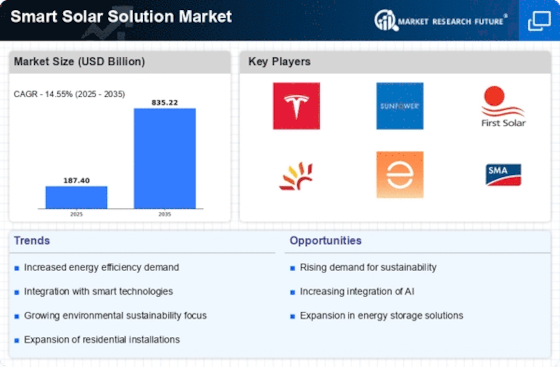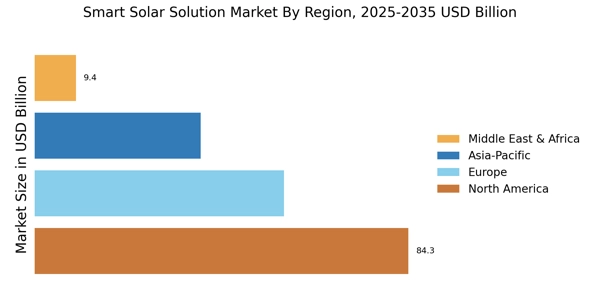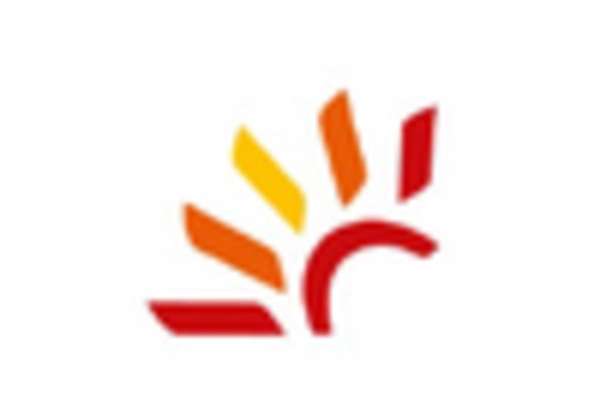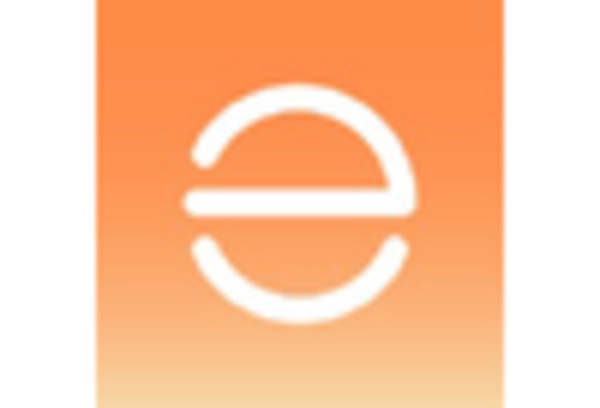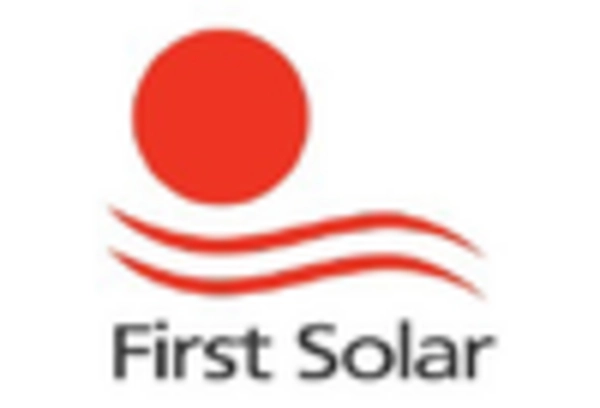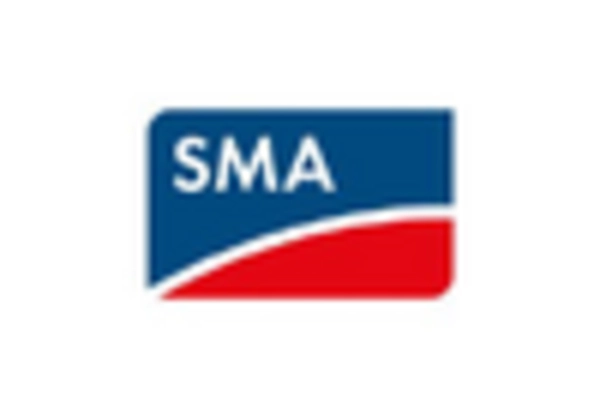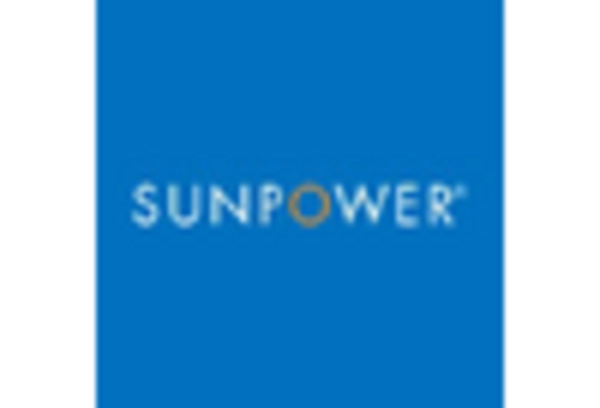Rising Energy Costs
The Smart Solar Solution Market is also being propelled by the rising costs of traditional energy sources. As fossil fuel prices continue to fluctuate, consumers and businesses are increasingly seeking alternative energy solutions. The economic pressure from rising energy bills is prompting a shift towards solar energy, which offers a more stable and predictable cost structure. In many regions, the levelized cost of electricity from solar has become competitive with, or even lower than, conventional energy sources. This trend is expected to continue, with projections indicating that by 2026, solar energy could account for a significant portion of the energy mix, further driving the Smart Solar Solution Market.
Technological Advancements
Technological advancements play a pivotal role in shaping the Smart Solar Solution Market. Innovations in solar panel efficiency, energy storage systems, and smart grid technologies are driving the market forward. For example, the development of bifacial solar panels, which capture sunlight on both sides, has led to increased energy generation. Additionally, advancements in battery storage technology are enabling consumers to store excess energy for later use, enhancing the overall efficiency of solar systems. As of 2025, the market for energy storage solutions is projected to grow at a compound annual growth rate of over 20%, indicating a robust demand for integrated smart solar solutions.
Government Incentives and Policies
The Smart Solar Solution Market is experiencing a surge in growth due to favorable government incentives and policies aimed at promoting renewable energy. Various governments are implementing tax credits, rebates, and grants to encourage the adoption of solar technologies. For instance, in several regions, policies are being established to facilitate net metering, allowing consumers to sell excess energy back to the grid. This not only enhances the economic viability of solar installations but also stimulates market demand. As of 2025, it is estimated that government incentives could account for up to 30% of the total investment in solar solutions, thereby significantly impacting the Smart Solar Solution Market.
Environmental Concerns and Sustainability
Growing environmental concerns are significantly influencing the Smart Solar Solution Market. As awareness of climate change and its impacts increases, both consumers and businesses are prioritizing sustainability in their energy choices. The shift towards renewable energy sources, particularly solar, is seen as a crucial step in reducing carbon footprints. Many organizations are setting ambitious sustainability goals, which often include transitioning to solar energy. This trend is supported by research indicating that solar energy can reduce greenhouse gas emissions by up to 90% compared to fossil fuels. Consequently, the demand for smart solar solutions is likely to rise as stakeholders seek to align with environmental objectives.
Urbanization and Infrastructure Development
Urbanization and infrastructure development are key drivers of the Smart Solar Solution Market. As urban areas expand, the demand for energy increases, necessitating innovative solutions to meet this growing need. Smart solar solutions are being integrated into new buildings and infrastructure projects, providing a sustainable energy source that aligns with modern urban planning. The trend towards smart cities, which incorporate renewable energy technologies, is gaining momentum. By 2025, it is anticipated that a significant percentage of new urban developments will include solar energy systems, thereby enhancing the overall appeal and functionality of urban environments. This integration is expected to further stimulate the Smart Solar Solution Market.


